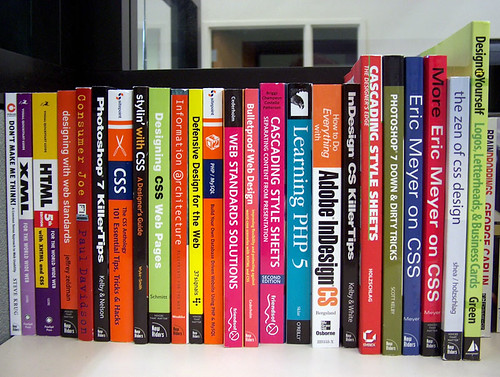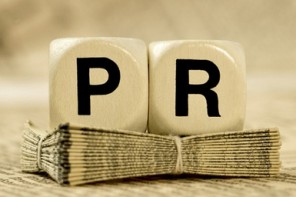I first heard about Heather Armstrong, aka Dooce, through Lisa about a decade ago. She was a popular blogger — a damn good writer, much like Lisa (who still reigns among one of my favorite writers ever). I didn’t catch onto the Dooce blog, mostly because I was consumed with other pursuits at the time, but I saw Heather speak at SXSW, admired her when I read the occasional article, and agree she was a trendsetter in her own right.
Looking back at Heather Armstrong’s rise to Internet stardom, I associate her with two main things:
- She was a pioneer in the mommyblogging world. She gave rise to a whole gaggle of mommybloggers, many of whom would later try to ride on her coattails to receive freebies in exchange for their influence. It wasn’t her own doing, but I do think that Heather, with her excellent writing and anecdotes, started a movement.
- She made Maytag cave when customer service failed her because her influence was strong enough to make that happen.
Heather stopped blogging in the frequency that she had a few years ago to focus on other projects, and perhaps that’s for good reason.
Influence is everywhere–but that’s not necessarily a good thing
Social media has given rise to a great deal of Internet superstars, many who have an expectation of entitlement once they have gotten past a certain threshold of visibility. At one point, people would have considered me an “Internet sensation” too, in fact, within the online marketing niche. I still have people approach me in awe of my influence and the number of followers I have on social media, though I am quick to acknowledge that I had more followers on Twitter at one point, have barely tweeted in the public eye in almost three years, and by choice, my influence is waning.
It’s because I think that influence is dangerous — for me and for others.
Fame, for awhile, got to my head. About 10 years ago when Andy Beal was doing a book signing of Radically Transparent at a search engine conference, I cut the line in front of a bunch of patient people because I was “that person” who shouldn’t have to wait when I could just join a friend (and when you’re influential, you have many) who could help me bypass the whole thing. When Lisa observed that behavior afterward, she made me realize that my priorities weren’t in the right place. She was right. It was a humbling experience to understand that influence and visibility lends itself to ego — which is true for just about everyone at one point and sometimes lasts throughout that influence. Just think of all your favorite celebs, some of whom want to be in the spotlight and others who are more grounded prefer to keep their distance. I still have friends who prefer to flaunt their social stature. For me, I had to take a step back and prioritize that which was more important to me. It wasn’t fame or visibility or a way to have a bigger name.
The only social network I’m really social on (and still, selectively so) is one where I have 600 followers, and I haven’t updated most of my social profiles with what I’m up to presently. In fact, most of my good friends have no idea. I don’t want people to know so that I can be under scrutiny since I have (or had) a certain level of influence. I prefer to keep it that way.
Maybe I’m more of an introvert than you all thought.
Influence shouldn’t be a shortcut to better treatment
I’ve always been of the opinion that your voice can be heard loud and clear if you bitch and moan online. In fact, I’ve worked with a number of brands in service and support because I am passionate about great rapid service, offering it so that people don’t have to bitch and moan altogether. I prefer to create a cohesive service machine so that people aren’t leveraging their influence as a first or even last resort. (I do recognize that people will do it anyway for convenience sake, but I also still believe that people on Twitter who have to add a period before a username to be seen by their friends in a public forum are just exploiting you.)
Still, the consumer transition of service complaints into the social media world to achieve satisfactory resolution (which wouldn’t otherwise happen through traditional channels) was entirely necessary. I will never disagree of the importance for brands to bring “human” back into service again, treating customers as if they’re people and responding in a friendly way, not in a robotic formal manner without recognizing that there’s a person behind the screen. Drones serving drones is not the future and should live in our distant past. Service needs to reign supreme in all industries because that is where our future is headed, in restoring humanity and emotion into the model. And social media has contributed to this transformation.
One night last week, I had a situation at Overstock that required executive escalation. After two failed standard support attempts, I conveyed the situation to a respected friend and colleague of mine, and he said that I should leverage my influence to make things happen. “I did that [to another brand] recently and they responded pretty quickly–and you have MUCH more influence … than I do,” he told me.
I immediately shunned the idea. That’s not me. Influence is often exploited by those who wield it. Why am I better than you or anyone else who doesn’t have that influence? Why do companies have to cave to influence? We’re all paying customers, are we not?
But that’s the exact message influence tells. “She’s better than you because she has more friends on social media.” Therefore, it should be expected of me to yell loud, and when the brand responds, I should be treated better than someone else since I am more important than a customer of equal loyalty status because I have a few more eyeballs on me online.
I don’t agree with that philosophy. If Jennifer Lawrence walks into a store, should the clerk bend over backward and serve her at the expense of other customers? Do you know who I am? Would Jennifer even want that? I’d hope not. She seems pretty down to earth to me.
I’m not Dooce. I’m not going to pull a Maytag. I don’t disagree with Heather Armstrong in how she made Maytag respond to her, because her situation and the media uproar that followed was a necessary wake-up call for brands to recognize that social media is bringing the voice of all people to a public forum. I still completely agree that social media is a better platform for support than others because real time support needs to pervade the entire organization, but yet social media support is the only place that really happens. We’re now at the point that we’re all influencers and we all have a voice, albeit some with larger followings than others. Heather’s situation with Maytag was a significant step for brands to acknowledge the importance of listening to consumers period. But I won’t ride that wave because my influence is more significant than that of others — and neither should anyone else anymore. It’s why I stepped back. I’m a person, I’m a consumer, and we are all relevant in the context of good service.
What I do think, though, is for brands to consider the people behind every single complaint, to be a little less rigid about sticking to policy and more focused on maintaining customer loyalty, especially when it makes sense for the company to step outside confined boundaries. In my situation, I accessed a product page, and 4 minutes later without warning, the price jumped. A few minutes after that, I added the item to the cart and the new price — not the price I had accessed the item at — was reflected in my cart, a whopping 43% more than I had prepared to buy it at. And yet, the low level support reps didn’t want to hear any of it. It was then that asserting my influence was suggested.
I ended up escalating it my own way (and privately) to make it right. Fortunately, Overstock didn’t disappoint. After a phone call from a manager who identified with my situation, even telling me point blank that she completely understood that there was no timer indicating a sale that was to end imminently, and emphasizing with the specifics of my complaint (“I wouldn’t know to look for it either,”), the company made it right. What they got from me was my continued loyalty and a blog post out of it.
But most brands, including Overstock’s low level support team, have ways to go. Great service requires everyone to be aligned so that escalation shouldn’t even be necessary. If brands want to delight customers, they will put all of their employees on the same level, giving them creative oversight to accommodate a customer need where appropriate. I understand that not all brands are of the financial stability to make such accommodations, and that’s fine — if you are small enough that you truly can’t, it is important to remind the customer that as a brand, you’re human too. (I’d appreciate leveling with the consumer at any stage over a monotonous emotionless response that expresses an unwillingness to help; “we’d love to help you but can’t afford to” makes me still appreciate that the brand would if they could.) However, it certainly helps when you’re there and can.
We’re in an era where we all are online, some more than others. But we’re all online. Where service is concerned, many of us transitioned into the online era when we recognized that brands weren’t helpful through traditional channels; things just got done leveraging our social influence. We’re still at the point where social media is still treated as a more important and relevant channel to get support — many brands prioritize social requests more than a phone call or email and give customers better care and attention. And that’s wholly flawed logic. Just because a certain demographic of user is still using the phone doesn’t mean that person isn’t less important or less influential. Maybe they just don’t want to abuse their power for gain. They shouldn’t have to. Brands should just be awesome from the get-go.
If there’s one takeaway from the rise of social media support, it’s that brands need to take that mindset of super-fast support and make it a reality at every touch point. And then, you know what? People might not use a public forum to ridicule a brand and demand assistance altogether.
Great service is about treating all customers equally and acknowledging their importance so that they don’t have to yell and scream on social media or on these more modern channels where they have a following. Great service also requires an emotional element, and many brands just don’t give that a second thought.
In 2017, may we hope that brands catch up with the customer and put the people back in service. We’ll all be better for it.






